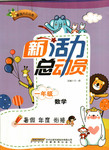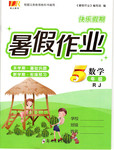题目内容
Jane Austen, the writer of Pride and Prejudice, wrote many stories of love. However, she ______ single all her life.
A. remained B. reminded C. realized D. required
练习册系列答案
 新活力总动员暑系列答案
新活力总动员暑系列答案 龙人图书快乐假期暑假作业郑州大学出版社系列答案
龙人图书快乐假期暑假作业郑州大学出版社系列答案
相关题目
题目内容
Jane Austen, the writer of Pride and Prejudice, wrote many stories of love. However, she ______ single all her life.
A. remained B. reminded C. realized D. required
 新活力总动员暑系列答案
新活力总动员暑系列答案 龙人图书快乐假期暑假作业郑州大学出版社系列答案
龙人图书快乐假期暑假作业郑州大学出版社系列答案